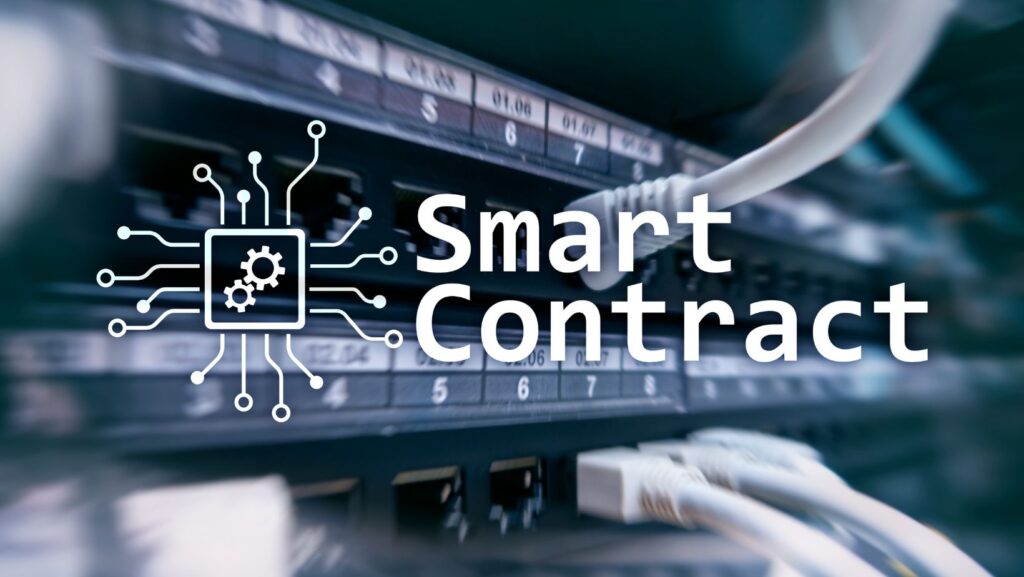
Due to the lack of trust and transparency, organizations waste a great deal of time and money on a middle person to finalize agreements. Smart contracts remove the need for an intermediary because each record is connected to the previous one and consecutive ones on the blockchain on the distributed ledger, creating trustless relationships within the ecosystem. They eliminate any ambiguity when it comes to a transaction being executed. Smart contracts are becoming a widespread phenomenon, serving as the supporting technology behind many applications.
Smart contracts run on the Ethereum blockchain and have the power to execute and enforce themselves autonomously and automatically. To write a smart contract and use it on the network, you need to know how to code and have enough Ethereum to deploy your contract. You can use an online gas calculator to determine the cost associated with deploying the smart contract, which is based on bytecode size, gas price, and network congestion. After deployment, you can track your Ethereum transaction on a block explorer to verify its status, check gas fees, and view the contract’s details. Originally used for cryptocurrency transactions, smart contracts have unlimited growth potential.
Let’s Start at The Beginning: What Are Smart Contracts?
Smart contracts are fundamental components of blockchain-based platforms, not to mention a crucial element of many application-focused blockchains like Ethereum. Essentially, a smart contract is computer code that automatically executes when predetermined conditions are met. All participants can be certain of the outcome, so there’s no need for a go-between or contract enforcement in an agreement or transaction. The code can represent the manifestation of an agreement between parties or might complement a traditional legal document. Smart contracts follow an if-then logic; that is, they’re conditional.
An ever-increasing number of decentralized applications across various blockchain networks provide the means for sophisticated functionalities. Nevertheless, we’re many years away from that. Getting back on topic, within a smart contract, there can be as many clauses as needed to meet participants’ needs and guarantee the task will be completed adequately. In the case of Ethereum, smart contracts are executed on the Ethereum Virtual Machine, so payment is made through the native cryptocurrency. The more complex the smart contract is, the more gas must be paid to execute the agreement.
Some Smart Contract Examples with Huge Implications
Smart contract use cases are revolutionizing the world around us and are used in nearly every industry and domain. So, let’s explore a few real-world examples of smart contracts to understand how they revolutionize practices across different sectors.
Banking & Financial Industry: Lending, Borrowing, Trading
Decentralized applications, or dApps, can be used as a substitute for traditional financial services such as lending, borrowing, or trading, to name just a few. Smart contracts lie at the core of dApps. dApps use smart contracts to automate various processes, whether core services or general governance functions; they can use one or more smart contracts to operate. Due to the increased transparency provided by smart contracts, dApps lower barriers to entry in the financial services landscape worldwide. Inadequate access to finance remains a major obstacle for many entrepreneurs, particularly in developing countries.

KYC guidelines require that banks and other financial institutions verify their customers’ identities to avoid money laundering. In this context, smart contracts allow for user privacy protection on enterprise blockchains, ensuring the effectiveness and time efficiency of operations. Leveraging privileged nodes, an organization can send requests to certification nodes to ensure it has the much-needed consent to receive information from another individual (or business). KYC is a labor-intensive, repetitive process that’s prone to errors, so smart contracts can help eliminate issues that could lead to lawsuits and disagreements.
Smart Contracts for Supply Chains
To move a container from one place to the other, there are countless different interactions among various parties. Given the high volume of engagement involved, it makes sense that supply chain management has become an important use case for smart contracts. IoT devices can be used from one end of the supply chain to the other, recording each step a product makes. By using smart contracts, the devices can be automatically configured to collect data, processing and storing it in a secure, decentralized fashion. On complex supply chains, smart contracts empower managers to view real-time stock levels.
Healthcare: Protecting Electronic Medical Records
Healthcare is another industry that has started to implement smart contracts for riskless, dependable, and transparent data sharing. Healthcare systems hold records for a long time to prevent legal issues and access the information they need to help patients. The laws vary by state, so the minimum amount of time records are kept isn’t uniform across the board. Smart contracts allow for entire databases of health records to be securely encrypted and accommodated. Doctors and relevant healthcare professionals can devise better treatment procedures based on a patient’s history and consecutive outcomes.
Blockchain technology facilitates the use of private keys to authorize tasks, meaning that only certain individuals can gain access. It’s possible to have smart contracts send patient information to insurance companies for compensation claims, accelerating underwriting and claim resolution cycles. At any rate, the blockchain mechanism has the potential to solve many problems on account of the appended-only-ledger principle and the decentralization of blocks between network participants. Electronic medical records can manage a high volume of patient data and provide easy access to the information, but they have some pitfalls, like centralized storage and inadequate control.
NFT Smart Contracts in Gaming

Finally, yet importantly, NFTs rely on smart contracts. While NFTs allow unique virtual assets to be created, smart contracts make available the much-needed infrastructure for their ownership and transfer. Smart contracts ensure the tokens aren’t replicated. NFTs provide the foundation for how players interact and move in the game – they can represent weapons, armor, and even virtual worlds. Due to blockchain technology, players can secure the utility and value of in-game purchases, not to mention asset acquisitions. When an NFT is exchanged, the owner’s details are updated on the blockchain network where the smart contract lives.
Wrapping It Up
Smart contracts are slowly but surely becoming the framework for developing numerous solutions, with many experts seeing utility expanding in the future.










